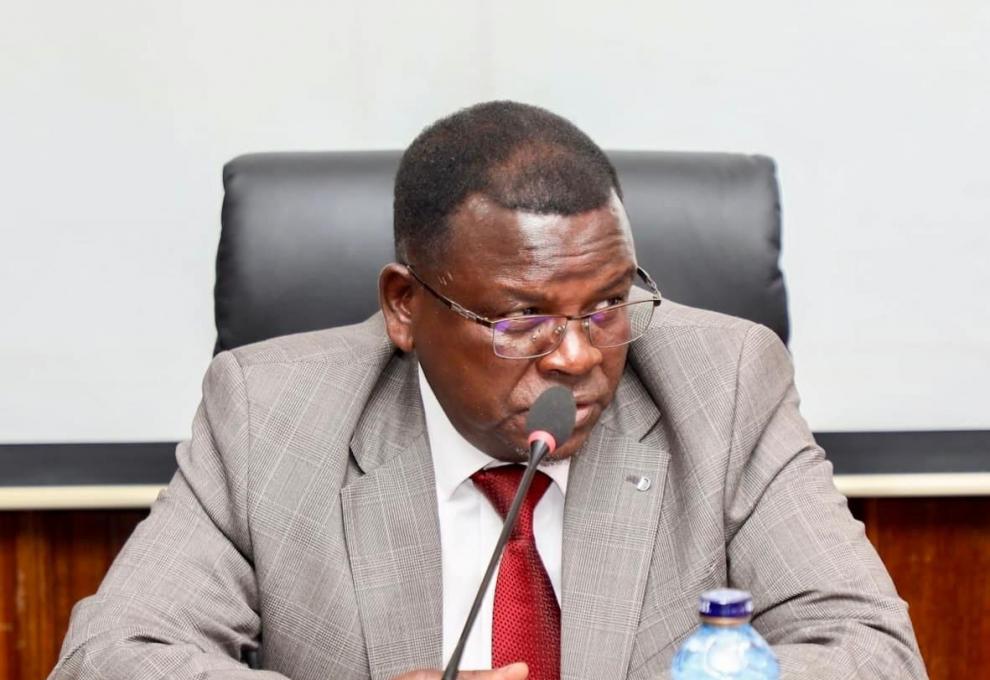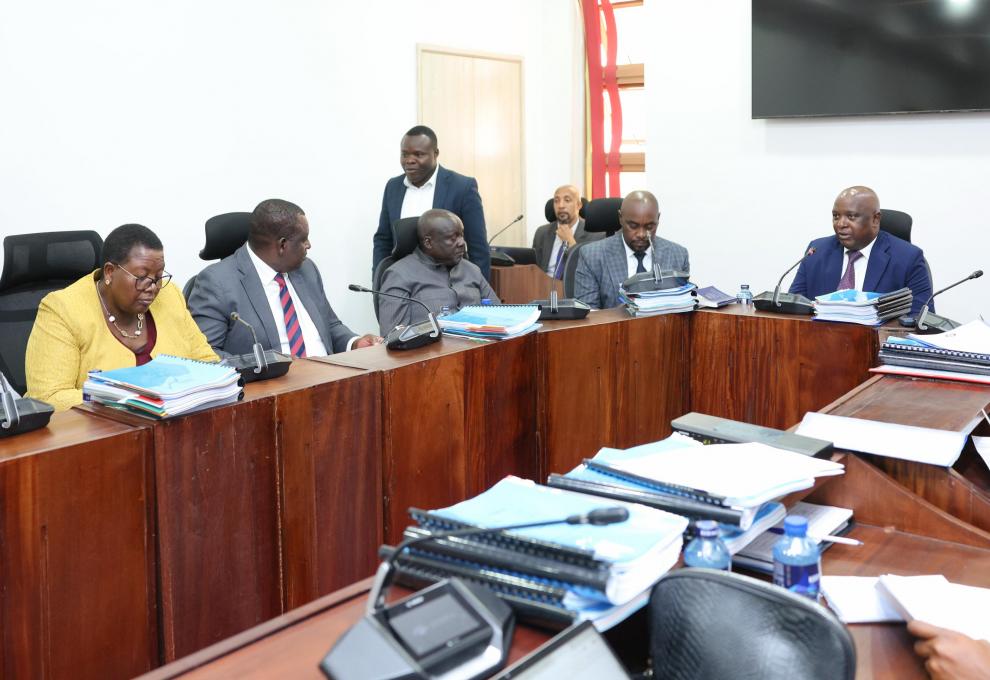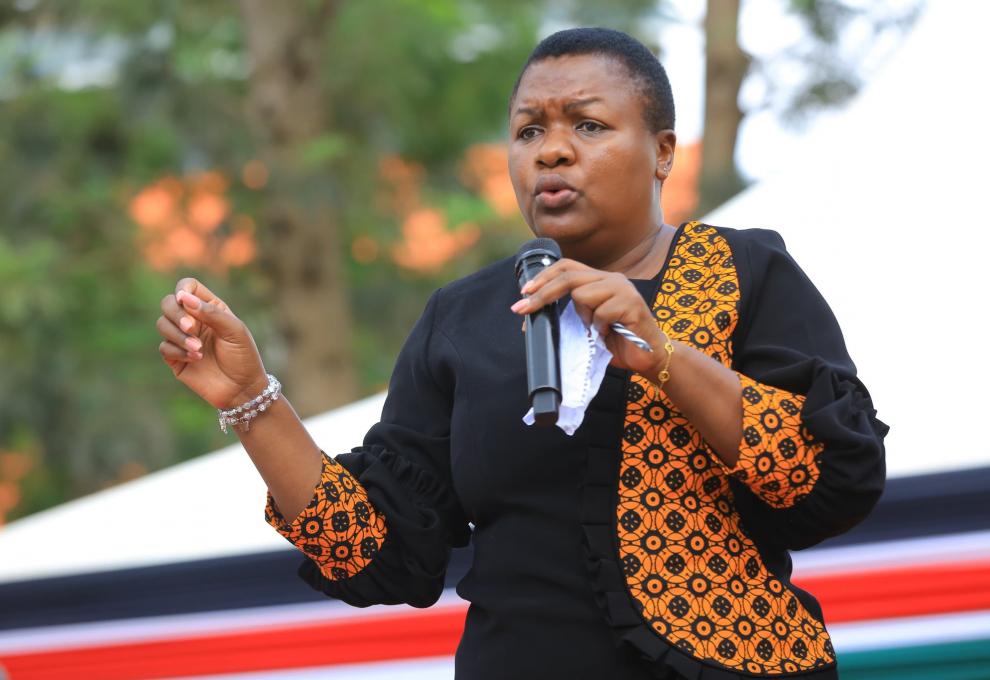𝐏𝐎𝐒𝐈𝐓𝐈𝐎𝐍 𝐒𝐓𝐀𝐓𝐄𝐌𝐄𝐍𝐓 𝐎𝐍 𝐌𝐈𝐒𝐈𝐍𝐅𝐎𝐑𝐌𝐀𝐓𝐈𝐎𝐍 𝐑𝐄𝐆𝐀𝐑𝐃𝐈𝐍𝐆 𝐓𝐇𝐄 𝐌𝐔𝐍𝐆 𝐁𝐄𝐀𝐍𝐒 𝐁𝐈𝐋𝐋, 𝟐𝟎𝟐𝟐
It has come to my attention that misleading information is being circulated in the press and social media regarding the Mung Beans Bill, 2022, sponsored by Sen. Enoch Kiio Wambua. Specifically, some reports incorrectly claim that Kenyans in general will need to obtain a license to grow mung beans if the Bill is passed. This is a misrepresentation of the Bill's intentions and provisions.
The Mung Beans Bill, 2022, was officially published on 30th December 2022 and was read for the First Time in the Senate on 15th February 2023. Contrary to some reports, the Bill is no longer in the Senate; it was passed in the Senate and referred to the National Assembly on 21st February 2024. The Bill aims to provide a framework for the regulation and promotion of the mung bean industry in Kenya.
𝐊𝐞𝐲 𝐂𝐥𝐚𝐫𝐢𝐟𝐢𝐜𝐚𝐭𝐢𝐨𝐧𝐬:
1. 𝑅𝑒𝑔𝑖𝑠𝑡𝑟𝑎𝑡𝑖𝑜𝑛 𝑣𝑠. 𝐿𝑖𝑐𝑒𝑛𝑠𝑖𝑛𝑔
Registration: The Bill requires small and medium-size mung bean farmers to register with the relevant County Executive Committee (CEC) member. This is a common practice already in place for other crops such as tea and coffee. The primary purpose of this registration, as outlined in Clause 8 (2) of the Bill, is to allow the government to:
- Maintain a register of all mung bean growers;
- Record the location, size, and variety of mung beans grown; and
- Assess the potential crop capacity within counties and the country.
-
Licensing: Licensing is specifically required only for persons or entities that intend to market, process, or engage in large-scale trading of mung beans and related products. This is clearly provided for in Clause 9 (1) of the Bill.
2. 𝑃𝑢𝑟𝑝𝑜𝑠𝑒 𝑜𝑓 𝑡ℎ𝑒 𝑅𝑒𝑔𝑖𝑠𝑡𝑟𝑎𝑡𝑖𝑜𝑛
The registration of small and medium-size mung bean growers is intended to help the government better understand and promote the development of the mung bean industry. This data is crucial for strategizing on how to make Kenya’s mung bean industry competitive on an international level.
3. 𝑃𝑢𝑟𝑝𝑜𝑠𝑒 𝑜𝑓 𝑡ℎ𝑒 𝑅𝑒𝑔𝑖𝑠𝑡𝑟𝑎𝑡𝑖𝑜𝑛
The Bill seeks to facilitate and develop a framework that will regulate and promote the mung bean industry in Kenya, ensuring that it thrives both locally and internationally. The registration process is a step towards achieving these goals, not a punitive measure against farmers.
I urge the public and the press to refer to the actual text of the Mung Beans Bill, 2022, to avoid spreading misinformation. The Bill does not impose a license requirement for growing mung beans; it only requires registration for small and medium-size farmers, similar to other regulated crops. The licensing provisions are solely for commercial activities such as processing and large-scale trading.
𝐒𝐄𝐍. 𝐄𝐍𝐎𝐂𝐇 𝐊𝐈𝐈𝐎 𝐖𝐀𝐌𝐁𝐔𝐀, 𝐌𝐏
𝐒𝐄𝐍𝐀𝐓𝐎𝐑 𝐅𝐎𝐑 𝐊𝐈𝐓𝐔𝐈 𝐂𝐎𝐔𝐍𝐓𝐘
















